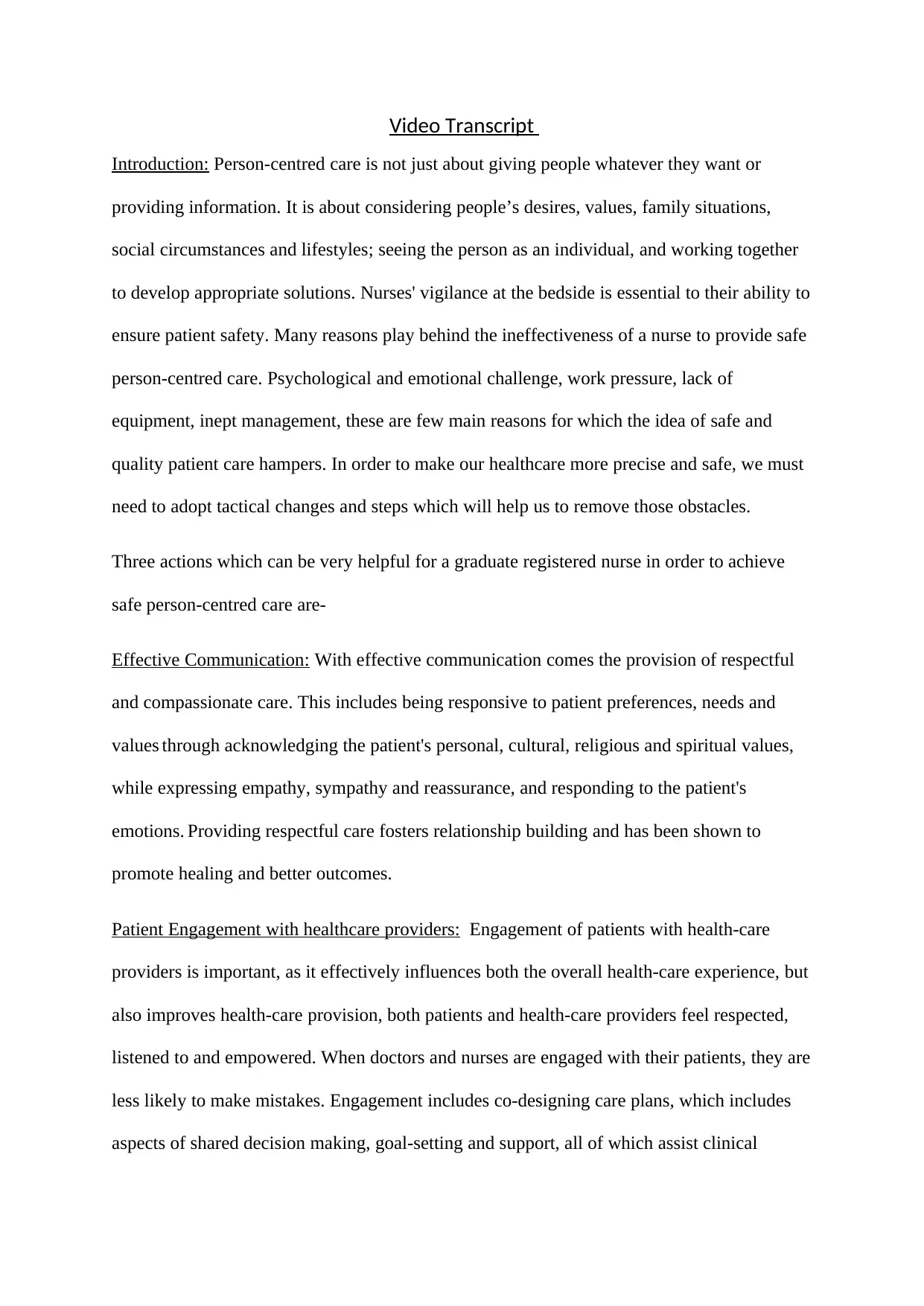Challenges and Solutions for Person-Centred Care in Nursing (NSB305)
VerifiedAdded on 2022/10/13
|2
|397
|81
Report
AI Summary
This report delves into the critical aspects of person-centred care within the nursing profession, specifically addressing the challenges faced by graduate registered nurses. It highlights the importance of considering patients' individual needs, values, and circumstances to foster a safe and effective healthcare environment. The report identifies key obstacles such as psychological and emotional challenges, work pressure, and inadequate resources that hinder the delivery of quality care. To overcome these, the report proposes actionable strategies, including fostering effective communication, promoting patient engagement with healthcare providers, and creating a supportive environment. It emphasizes the need for nurses to prioritize respectful interactions, co-design care plans, and ensure that the physical environment supports patient comfort and dignity. The ultimate goal is to improve patient outcomes and enhance the overall healthcare experience by focusing on the individual needs of each patient.
1 out of 2








![[object Object]](/_next/static/media/star-bottom.7253800d.svg)